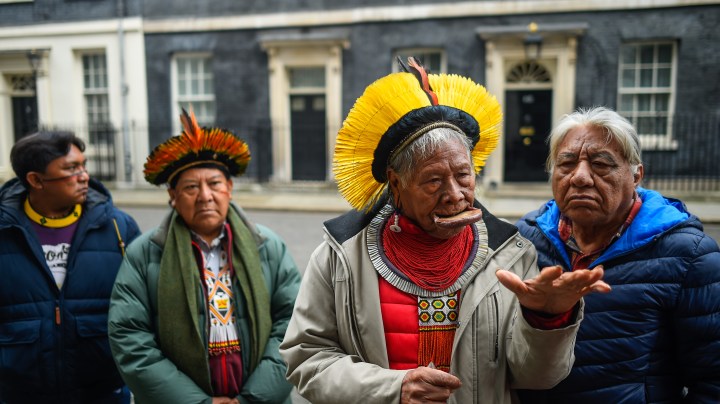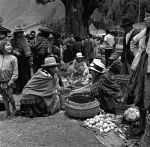Concern Grows as Brazil Reports Third Coronavirus Death in Indigenous Population

Dario Vitorio Kopenawa Yanomami, Vice President of Hutukara Yanomani Association, Davi Kopenawa Yanomami, President of Hutukara Yanomami Association, Raoni Metuktire, President of Instituto Raoni and Megaron Txucarramae, Kayapo Leader, speak to media outside Number 10 Downing Street after handing in a petition on February 3, 2020 in London, England. Photo by Peter Summers/Getty Images
Indigenous people in Latin America represent one of the groups most vulnerable to coronavirus. This week, Brazil confirmed its first case among the Yanomami tribe—a large Indigenous group made up of about approximately 27,000 people who live in remote areas in the Amazon. A 15-year-old boy named Alvanei Xirixan was taken into intensive care after showing signs of the virus. On Friday, the New York Times reported that he has passed away.
“Today we confirmed a case among the Yanomami, which is very worrying,” the country’s Health Minister Luiz Henrique Mandetta said on Wednesday. “We have to be triply cautious with (Indigenous) communities, especially the ones that have very little contact with the outside world.”
Mandetta went on to share that the government is planning to build field hospitals for tribes that are susceptible to foreign diseases. Much of the Yanomami population has been affected by outside diseases and external factors in the past. Many died from the ‘70s through the ‘90s because of malaria, measles and mercury poisoning. Similarly, other tribes who live in isolation are especially sensitive to germs that other communities have developed immunity to over the decades.
While Xirixan is the first to pass away among the Yanomami, he’s the third among Brazil’s broader Indigenous population. Currently, the country is grappling about 17,857 cases of coronavirus nationwide and its number of deaths was close to 1,000, as of Thursday. Leaders of Indigenous communities have turned to more aggressive protective measures, such as sealing off their lands and setting up border patrols, according to the Times. Such steps are seen as necessary. Brazil’s single indigenous congressional member said the virus could represent “one more genocide” for native people.

In other countries that are home to Indigenous populations, including Colombia, social distancing practices and a strain on resources have become specific challenges. Some groups are struggling for meals, especially in areas where food is provided by the government. Josefa García, a school administrator for the Wayuu group, described to the Times how their community’s schoolchildren have been left waiting on meals that the country’s ministry of education typically provides.
“Our fear is that if we don’t die of the virus. We will die of hunger,” Garcia said.